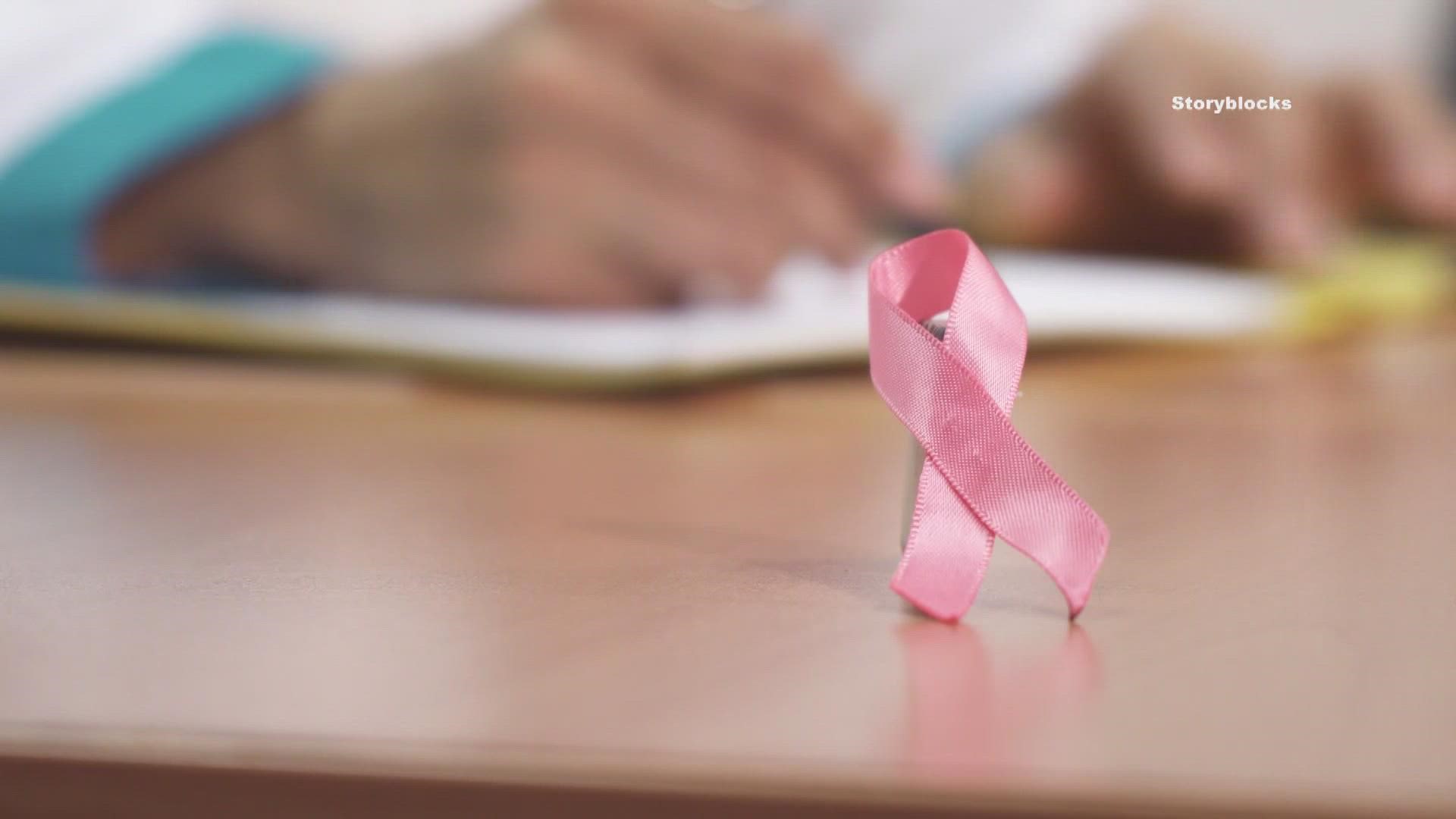TEMPLE, Texas — When it comes to breast cancer awareness, the focus is often on early detection and keeping up with your mammograms.
And while early detection is key to treating a cancer diagnosis, so is knowing your risk factors for developing the disease in the first place. That's why knowing your family history is so important.
For some, genetic testing could provide some insight.
The average woman has a 1 in 8 chance of developing breast cancer. But if you have a first-degree relative--that's a parent, sibling, or aunt, who has breast cancer, especially if they had it at an early age--you're at a higher risk yourself and should talk to your doctor about genetic testing.
"The purpose of genetic testing is to really better understand the genetic determinants or vulnerabilities that we all have specific types of cancer," Dr. Maria Blazo, a clinical geneticist at Baylor Scott & White said.
The tests determine if you have a higher risk of developing breast, pancreatic, prostate, or ovarian cancer. Dr. Blazo says genetic testing is relatively easy. Most tests use either a blood or saliva sample.
"So the laboratory will analyze as many genes as we want them to but the most common genetic causes for hereditary breast cancer are the BRCA genes, breast cancer one and breast cancer two," Dr. Blazo said.
Your test could come back positive, negative, or a VUS (a variant of uncertain significance).
"So a variant of unknown significance rest assured that laboratory has looked at all the data but we don't have sufficient evidence at this time to say that that variant is disease-causing," Dr. Blazo said.
A VUS can later be deemed as something of concern or can be proven to be benign, so Dr. Blazo says you should check in with whoever did your genetic testing once a year.
So what do you do with a positive test?
Dr. Blazo says there are three approaches: increased monitoring, discussing medications called chemo prevention or undergoing risk-reducing surgical strategies.
For example, you could get your breast tissue removed with a preventative mastectomy much like Angelina Jolie did back in 2013 among other options.
Since you share genes with family and can pass them down, Dr. Blazo says it's important to share your genetic testing results with family regardless of the outcome.
"Even if it's negative it's important to share that information with our families because awareness is key," Dr. Blazo said.
And while there are companies out there that allow you to order one on your own, the recommendation is to always speak with a doctor or genetic counselor first.
"We want that testing to be done in the context of what are you going to do with that information. Who is going to apply the standards for increased screenings and increased monitoring if there is a positive?" Dr. Blazo said.
Just so we are clear, testing positive for a variant does not mean you will automatically develop breast cancer, but you have a much higher chance.
Depending on your family history and insurance plan, a genetic test could be covered by your insurance. But if it's not, Dr. Blazo says they typically cost between $250 and $350.
On October 30th, the Texas Today team will be a part of Susan G. Komen's More Than Pink Walk. You can join the Texas Today walk team by clicking here.
Use the hashtag #Whywewalk on social media to show your support throughout the walk.
Click here to see what the Komen organization is about.

